The title "The pen that carries religion and eliminates evil" of Nguyen Dinh Chieu is based on two famous verses of his own, which are highly appreciated by the people of the South: "Carrying so much religion, the boat does not sink / Stabbing so many evil people, the pen does not turn evil"!
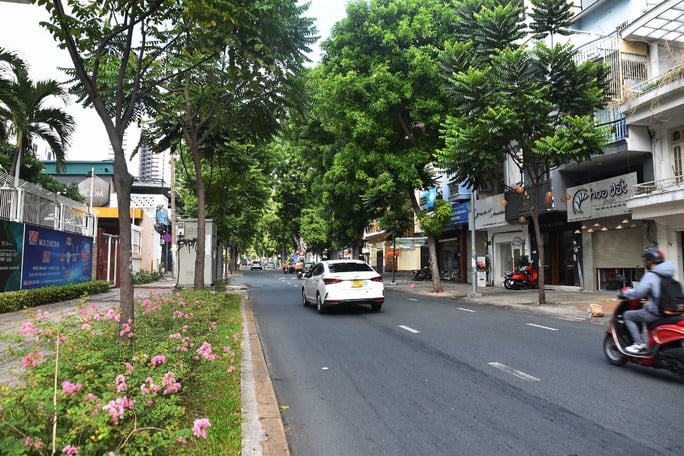
The name of the famous person Nguyen Dinh Chieu has been used to name a very beautiful street in Ho Chi Minh City. Photo: TAN THANH
Teachers are respected
That is also the spirit, the will, even the reason for living of "Do Chieu" - Bachelor (student) Nguyen Dinh Chieu - the affectionate name, from the people of the South through the generations, for a typical, representative Southern person, with 3 roles in one personality, which are: Teacher, doctor and poet.
Nguyen Dinh Chieu passed the baccalaureate exam in 1843 at Gia Dinh examination school, at the age of 21. After that, he spent 2 years "studying" in Hue to prepare for the Hoi examination in 1849 (due to being given special priority for scholars of the South: not yet a bachelor but still allowed to take the doctoral exam).
With only that level of education, and being blind since the age of 26, Mr. Do Chieu was still a great Confucian scholar, opening schools three times in three places: Binh Duong - his mother's hometown, Can Giuoc - his wife's hometown, and especially Ba Tri (Ben Tre) - where he settled at the end of his life.
Since childhood, he was wholeheartedly educated by his father. At the age of 11, his father sent him to study with a teacher who was a mandarin of the Hue court. Notably, although he did not directly receive instruction from the famous teacher Vo Truong Toan at Hoa Hung school, Nguyen Dinh Chieu's teacher was a student of Mr. Nghe Chieu, and Mr. Nghe Chieu was a student of teacher Vo Truong Toan. Therefore, the educational motto of teacher Do Chieu was still of/and from the "Hoa Hung Training Center": "Nourishing energy - Practicing righteousness", "Loyalty, Courage, Respect for righteousness, and Lightness of talent" - which are the typical qualities of the people of Cochinchina.
Poet Mai Huynh Hoa (1910 - 1987) - great-granddaughter of Nguyen Dinh Chieu - in 1935, in the newspaper "Tan Van" described the way teacher Do Chieu "sat" to teach, as follows: "There were about two hundred students, sitting in two rows on the left and right listening to the lecture. The teacher was blind and could no longer read books. But every time he asked the students a question about a certain part, the teacher would explain that part, as if he could still see the book, because he knew the books by heart".
Classes of students from many places came to Mr. Do Chieu's school to be taught in that way. On the day he passed away, they came to his funeral, and white mourning scarves covered the entire field. Thanks to him, they all became "Southerners" worthy of the words "Loyalty - Courage - Respect for Justice - Contempt for Money".
Among them were two of Nguyen Dinh Chieu's children: Nguyen Thi Ngoc Khue (literary name Suong Nguyet Anh, 1864 - 1922) - editor-in-chief of the first newspaper for Vietnamese women: "Nu Gioi Chung" (Female Bell); and Nguyen Dinh Chiem (1869 - 1935) - author of the famous operas "Phan Trang Lau", "Nam Tong Tinh Trung"... In addition, there were two monks: Le Khanh Hoa (1877 - 1947) and Thich Khanh Thong (1871 - 1953) - both of whom had great contributions to the "Buddhism Revival" movement in the early 20th century.
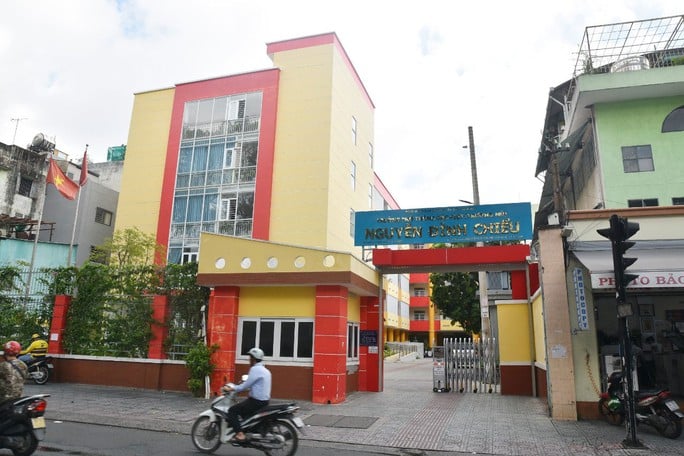
The name of the famous person Nguyen Dinh Chieu has been used to name a special school for blind children in Ho Chi Minh City. Photo: TAN THANH
Exemplary physician
In 1848, on the way from Hue to Gia Dinh to mourn his mother, Nguyen Dinh Chieu fell seriously ill and had to stay in Quang Nam for treatment. The result: His health was restored but his eyesight was lost. Another thing that came to mind was that during this time, thanks to the doctor who both treated him and wholeheartedly taught him the methods of treatment, Nguyen Dinh Chieu "got acquainted" with and then "went deeper" into the medical profession.
From then until the end of his life, Nguyen Dinh Chieu was blind but spent nearly 40 years opening a school to teach and working as a doctor to treat people.
History will have to investigate many things, to see how a blind person like Nguyen Dinh Chieu could become such a good doctor. But the good doctor, highly respected - Nguyen Dinh Chieu, that is a certain historical reality.
The patients who were treated and helped by physician Nguyen Dinh Chieu were everywhere, numbering in the thousands.
Not only practicing medicine and health, Nguyen Dinh Chieu also wrote books on medicine and medical ethics. That work is "Fisherman and Woodcutter Medical Questions and Answers", consisting of 3,642 six-eight verses and 21 poems.
In this work, Nguyen Dinh Chieu has fully summarized and presented the most essential things about the method and direction of treatment according to the perspective of oriental medicine; clearly talked about pulse, medicine, circulation, typhoid, obstetrics, pediatrics..., analyzed the heart, liver, spleen, lungs, kidneys... in the human body; pointed out many specific remedies, especially promoting the sense of responsibility of the physician: "Seeing someone in pain is like my own pain/ Which method can save and cure quickly"; criticized physicians who lack medical ethics: "Originally following the habit of greed/ Taking advantage of serious illness to demand a lot of money"; encouraged the treatment of the poor: "Even beggars are born with God/ If the illness can be cured, the medicine must be given for free"!
The people of Southern Vietnam consider physician Nguyen Dinh Chieu a famous physician in history, second only to Tue Tinh and Hai Thuong Lan Ong, for that reason.
Outstanding patriotic poet
If teaching and healing were two noble professions and careers of a blind Nguyen Dinh Chieu, then composing poetry and literature to encourage the spirit of patriotic examples, fight against invaders, and at the same time "carry the Way, eliminate evil", brought the Nguyen family to the rank of historical celebrities of the country and cultural celebrities of the world.
On November 23, 2021, in Paris (France), the 41st General Assembly of the United Nations Educational, Scientific and Cultural Organization (UNESCO) decided to honor Nguyen Dinh Chieu and recommended that all of humanity celebrate the 200th anniversary of his birth (1822 - 2022).
Nguyen Dinh Chieu's poetry and literary career is truly monumental, even more monumental as this is the career of a blind poet, living in the midst of the country's extremely turbulent mid-19th century - consisting of two stages:
The 1950s, with "Luc Van Tien", "Duong Tu - Ha Mau"... was the time to affirm the poet's ideology of Humanity and Patriotism.
From 1859 (when the French invaded Cochinchina) to 1888 (when Nguyen Dinh Chieu passed away), with 37 famous poems and orations (such as: "Running from the enemy", "Farewell to the old man", "Elegy for the martyrs of Can Giuoc", poems (12 poems), eulogy and eulogy for General Truong Dinh, poems (10 poems) eulogy for the military governor Phan Tong, Elegy for the martyrs of the six provinces...) was the period of brilliant development of Nguyen Dinh Chieu's literary career.
In both of these literary periods, three characteristics stand out:
Using Nom script, with a simple artistic language, imbued with Southern character, makes the work strongly attractive to readers.
Great success - in building the image of the farmer in traditional literature and the Southern hero in the patriotic cause - fighting against invaders.
Enthusiastically promoting human morality and a sense of responsibility for the country's destiny, through the Confucian concepts and terms of "Loyalty, Filial Piety, Integrity, and Conduct"...
Special status in a special life
Nguyen Dinh Chieu was born on July 1, 1822 in Tan Thoi village, Gia Dinh province (now Cau Kho ward, District 1, Ho Chi Minh City); died on July 3, 1888 in An Binh Dong village, in a small house, near Ba Tri market, Ben Tre province.
As the most outstanding patriotic poet of the Southern region, a Vietnamese historical celebrity, a world cultural celebrity, the temple worshiping Nguyen Dinh Chieu - located in the Memorial Area and Special National Monument: Hamlet 3, An Duc Commune, Ba Tri District, Ben Tre Province - built in the early 21st century, is 21 m high with 3 floors of yin-yang tiled roofs, symbolizing 3 special identities in a special life: Teacher, Doctor and Poet - has 4 wooden parallel sentences with sophisticated patterns, inscribed with two verses from the work "Duong Tu - Ha Mau" by Nguyen: "Carrying so many Dao, the boat does not sink / Stabbing so many evil people, the pen does not turn evil" and a pair of parallel sentences praising: "Humanity and Righteousness shine like the sun and moon / Literature shines like the Khuê star".
Source



![[Photo] Prime Minister Pham Minh Chinh receives Country Director of the World Bank Regional Office for Vietnam, Laos, Cambodia](https://vphoto.vietnam.vn/thumb/1200x675/vietnam/resource/IMAGE/2025/5/15/2c7898852fa74a67a7d39e601e287d48)
![[Photo] President Luong Cuong attends the National Ceremony to honor Uncle Ho's Good Children](https://vphoto.vietnam.vn/thumb/1200x675/vietnam/resource/IMAGE/2025/5/15/9defa1e6e3e743f59a79f667b0b6b3db)
![[Photo] In May, lotus flowers bloom in President Ho Chi Minh's hometown](https://vphoto.vietnam.vn/thumb/1200x675/vietnam/resource/IMAGE/2025/5/15/aed19c8fa5ef410ea0099d9ecf34d2ad)




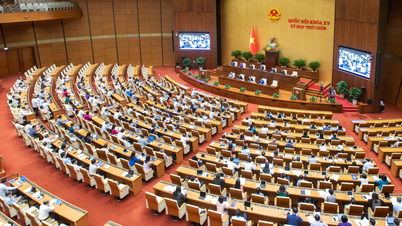

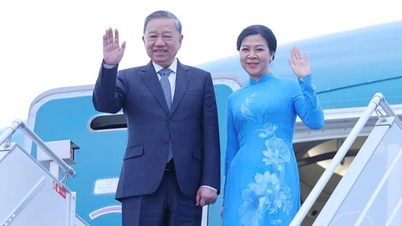


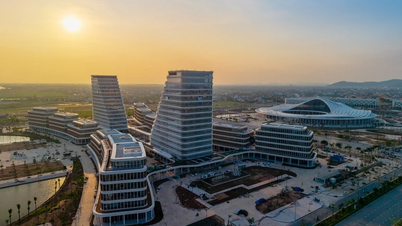







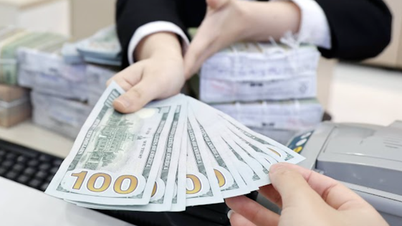
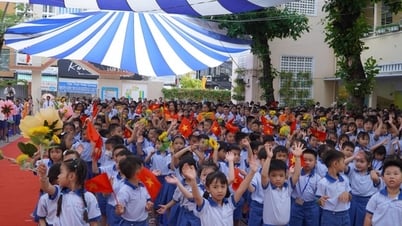




![[Photo] Close-up of An Phu underpass, which will open to traffic in June](https://vphoto.vietnam.vn/thumb/1200x675/vietnam/resource/IMAGE/2025/5/15/5adb08323ea7482fb64fa1bf55fed112)
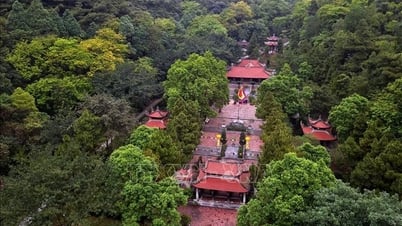



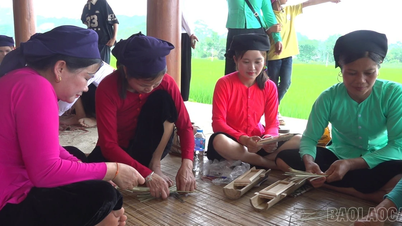

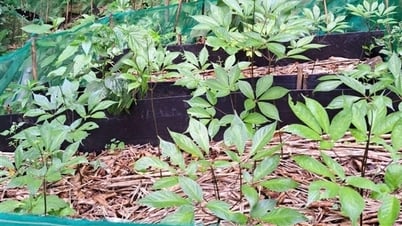



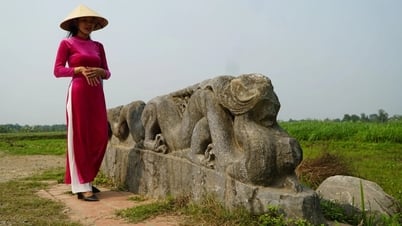









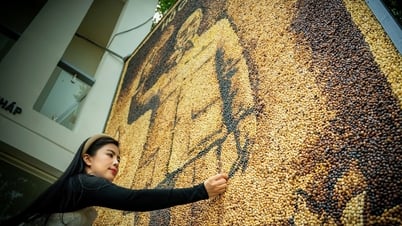






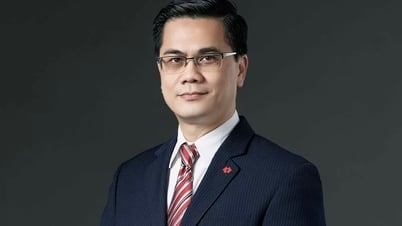







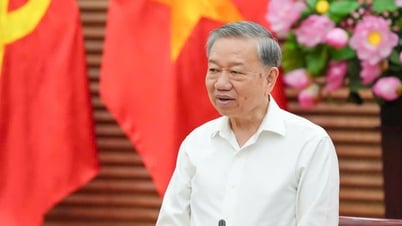
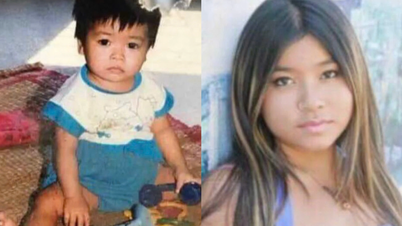
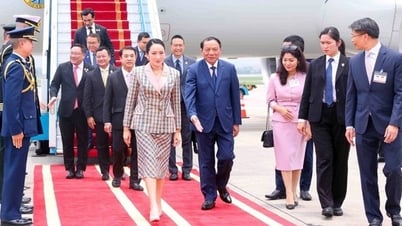

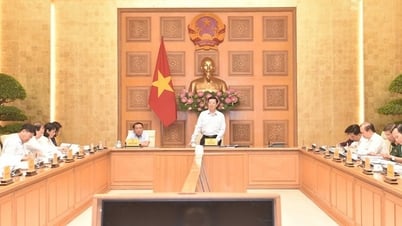



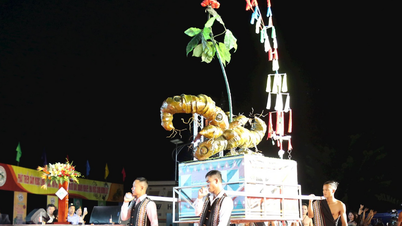



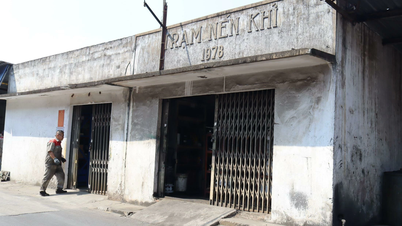

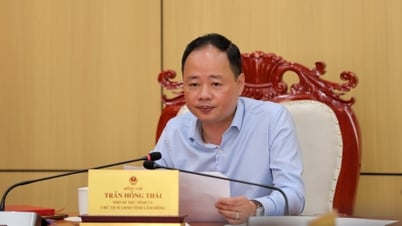

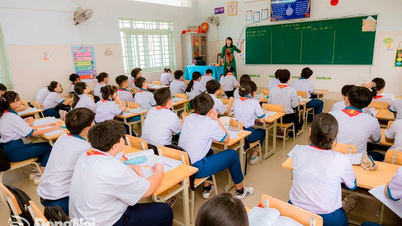
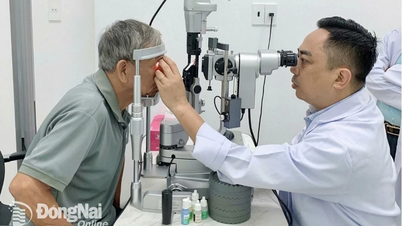









Comment (0)